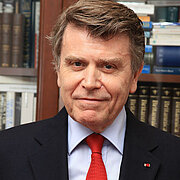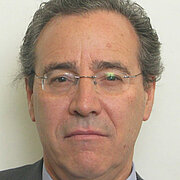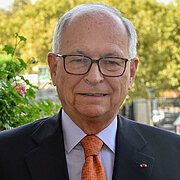Can the EU and the US demonstrate more flexibility without signaling a lack of resolve?
Intended to put pressure on Russia to end its meddling in Eastern Ukraine, European and US sanctions have been extended several times since 2014. Given their clear link to the Minsk agreements and the lack of progress in the negotiations, calls for more flexibility and incentives to break the stalemate have been made. Others have argued that the West should rather tighten the sanctions. Analysts also disagree about the political and economic effects the sanctions regime has had – both in Russia and the EU. Can the EU and the US demonstrate more flexibility without signaling a lack of resolve? Is there any economic need to rethink the sanctions regime from a European point of view? How important is US-Russian bilateral diplomacy, including possible summitry? Is there any realistic expectation of a US-Russian grand bargain?
Panel discussion

Clara Portela is Senior Associate Analyst at the European Union Institute for Security Studies (EUISS) in Paris, having previously served as a full-time faculty member in Political Science at the University of Valencia (Spain) and Singapore Management University (Singapore). Her research focuses on multilateral sanctions policies, arms control, non-proliferation and disarmament, with a focus on the role of the EU as an international actor. She holds a PhD from the European University Institute in Florence and an MA from the FU Berlin, and she is the recipient of the THESEUS Award for Promising Research on European Integration. Clara Portela has been a Visiting Professor at the OSCE Academy in Bishkek, the College of Europe, and the University of Innsbruck, and has held visiting positions with Carleton University (Canada), the Institut d’Etudes Politiques de Grenoble (France), Monash University (Australia) and Hitotsubashi University in Tokyo (Japan).

Thierry de Montbrial is Executive Chairman of the French Institute of International Relations (Ifri), which he founded in 1979. In 2008, he launched the World Policy Conference. He has been a member of the Académie des Sciences Morales et Politiques of the Institut de France since 1992. He has authored more of twenty books including Action and Reaction in the World System. The Dynamics of Economic and Political Power (UBC Press, Vancouver, Toronto, 2013) and Living in Troubled Times. A New Political Era (World Scientific, 2018).

Miguel Berger is Director General for Economic Affairs and Sustainable Development at the Federal Foreign Office Berlin. Prior to that, he served as Regional Director for the Near and Middle East and the Maghreb and before that as Commissioner for Globalization, Energy and Climate Policy at the Federal Foreign Office Berlin. From 2010 to 2013, he was the Deputy Permanent Representative at the Permanent Mission of Germany to the United Nations, working 2011 and 2012 as non-permanent member in the Security Council. During the 67th General Assembly, he served as Chairman of the 5th Committee of the General Assembly (Budgetary and Administrative Issues).
Chair

Ambassador Wolfgang Ischinger is Senior Professor for Security Policy and Diplomatic Practice at the Hertie School and Director of the school’s Centre for International Security. He has been Chairman of the Munich Security Conference since 2008. From 2006 to 2008, he was Germany’s Ambassador to the United Kingdom, and from 2001 to 2006, he was Ambassador to the United States. Ischinger previously held a wide range of diplomatic and policymaking positions, including State Secretary (Deputy Foreign Minister, 1998-2001).

